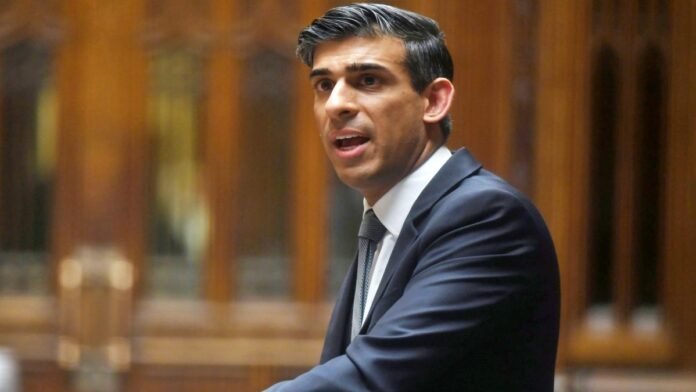
London: The UK government has unveiled a new set of immigration rules that will make it harder for foreign workers to enter and settle in the country. The rules include raising the salary threshold for skilled worker visas, banning family members from accompanying health and care workers, and introducing an immigration salary list. The government claims that these rules will reduce net migration by millions every year and ensure that immigrants are self-reliant and contribute to the economy.
Higher Salary Requirement for Skilled Worker Visas
One of the main changes in the new immigration rules is the increase in the salary limit for those applying for skilled worker visas, which allow foreign workers to fill jobs that require specific skills and qualifications. The current salary limit is 26,200 British pounds, but it will be raised to 38,700 British pounds in early 2024 when the new rules will come into effect. This means that only those who earn above this amount will be eligible to apply for skilled worker visas.
The same salary limit will also apply to those who want to bring their family members to the UK under the family visa category, which currently has a lower threshold of 18,600 British pounds. This will make it more difficult for low-income workers to reunite with their spouses and children in the UK.
No Family Members for Health and Care Workers
Another significant change in the new immigration rules is the ban on family members accompanying health and care workers who come to the UK on health and care visas. These visas are designed to attract foreign doctors, nurses, and other health professionals to work in the UK’s National Health Service (NHS) and social care sector. Currently, these workers can bring their dependents with them, but under the new rules, they will not be able to do so.
This decision will affect many Indians, who form a large proportion of the health and care workforce in the UK. According to the UK Home Office, there were 21,000 Indian nationals working in the NHS as of March 2020, making up 7.3% of the total staff. Many of them have their families with them or plan to bring them in the future, but they will not be able to do so under the new rules.
Immigration Salary List and Other Measures
The UK government will also introduce an immigration salary list, which will specify the minimum salary required for each occupation that is eligible for skilled worker visas. The list will be reviewed by the Migration Advisory Committee, an independent body that advises the government on immigration policy, according to the increased salary limit. The list will ensure that foreign workers are paid at least the same as their British counterparts and that they do not undercut the local labor market.
The government will also eliminate the 20% salary discount that is currently available for small businesses that hire foreign workers. This will make it more expensive for small and medium-sized enterprises (SMEs) to recruit skilled workers from abroad.
The government will also tighten the rules for student visas, which allow foreign students to study in the UK and bring their dependents with them. The government will impose stricter criteria for students to prove their academic ability, financial resources, and English language proficiency. The government will also limit the number of dependents that students can bring with them and the duration of their stay in the UK.
Rationale and Reaction
The UK government, led by Prime Minister Rishi Sunak, has announced these measures in response to pressure from the Conservative Party MPs, who want to reduce the level of immigration in the UK. The government argues that the new rules will make the immigration system fairer, more consistent, more legal, and more sustainable. The government also claims that the new rules will ensure that immigrants are not a burden on the state and that they contribute to the economy and society.

However, the new rules have also faced criticism from various quarters, including the opposition parties, the business sector, the education sector, and the migrant communities. They have argued that the new rules will harm the UK’s economy, competitiveness, diversity, and social cohesion. They have also pointed out that the new rules will create labor shortages in key sectors, such as health, care, hospitality, and construction, which rely heavily on foreign workers. They have also expressed concern that the new rules will separate families and violate human rights.




















































